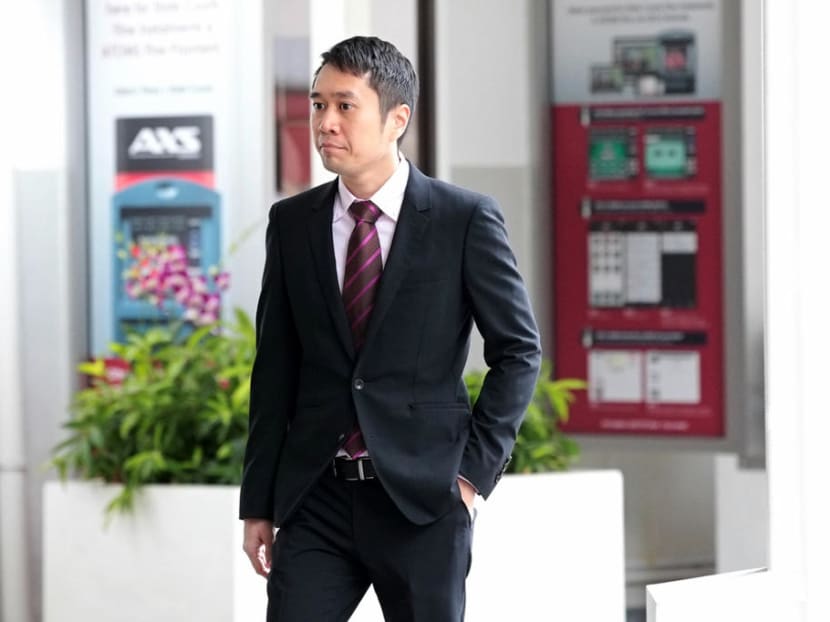Vigilante conduct cannot be condoned: Judge dismisses appeal by Jolovan Wham over civil disobedience event
SINGAPORE – A judge has dismissed appeals by social activist Jolovan Wham against his conviction and sentence over an event he organised three years ago that included a speech by Hong Kong activist Joshua Wong.

Jolovan Wham was fined S$3,200 for organising the event, titled Civil Disobedience and Social Movements, at the Agora in Sin Ming Lane on Nov 26, 2016, and for refusing to sign a police statement.
SINGAPORE – A judge has dismissed appeals by social activist Jolovan Wham against his conviction and sentence over an event he organised three years ago that included a speech by Hong Kong activist Joshua Wong.
In his grounds of judgment released on Friday (Oct 25), Justice Chua Lee Ming dismissed the appeal against conviction, finding that Wham had been correctly convicted after a trial. He also dismissed Wham's appeal against his sentence, saying it was not manifestly excessive.
Wham had been fined S$3,200 for organising the event, titled Civil Disobedience and Social Movements, at the Agora in Sin Ming Lane on Nov 26, 2016, and for refusing to sign a police statement.
The police had told Wham that he required a permit for the event as Mr Wong is a foreigner, but he went ahead with the event, which featured speeches by activists Kirsten Han and Seelan Palay, as well as a speech via Skype by Mr Wong, discussing issues "relating to civil disobedience and democracy in social change".
The judge disagreed with the arguments by Wham's lawyers, who contended that the offence for organising a public assembly without a permit is unconstitutional as it contravenes freedom of speech, assembly and association.
Lawyer Eugene Thuraisingam had suggested that any person who wishes to organise a public assembly merely needs to notify the police commissioner and it is up to the commissioner to issue an order prohibiting the assembly from being held.
If the organiser nevertheless proceeds with the assembly, he would not have committed any offence if the commissioner's decision to prohibit the public assembly is subsequently challenged and found to be invalid.
SUCH VIGILANTE CONDUCT CANNOT BE CONDONED: JUDGE
"I disagree with the appellant's submission," said the judge. He said this suggestion rests on the assumption that a person who disagrees with the police commissioner's decision is entitled to disregard and defy it, instead of challenging it in court.
"Allowing any person organising a public assembly to ignore and defy the commissioner’s decision, instead of challenging it in court, is to allow that person to take the law into his own hands," said the judge. "Such vigilante conduct cannot be condoned."
Wham's lawyers had argued that the event did not require a permit as it was merely a discussion that was not publicising a cause.
The event was a public one, said the judge, disagreeing with the defence's arguments that the event did not involve a cause as it did not feature discussions about any particular cause but only discussions "about the means through which any cause might be furthered".
"I disagree," said the judge. "The allegation against the appellant is that the appellant was advocating the use of civil disobedience to bring about social change.
"In this context, the focus is on the use of civil disobedience and that, in itself, is the substantive end. Even if one viewed bringing about social change as the substantive end, and the use of civil disobedience as the method by which this end can be achieved, it is clear that both are causes."
EVENT'S FACEBOOK DESCRIPTION ADVOCATED CAUSE
He agreed that the title of the event itself was neutral, but agreed with the prosecution that the description of the event on Facebook advocated the use of civil disobedience to bring about social change.
The Facebook description read: "Join Joshua Wong, secretary-general of Hong Kong’s Demosisto party as he shares with local activists Seelan Palay and Kirsten Han their thoughts on the role of civil disobedience and democracy in building social movements for progress and change."
"It is clear from the above description of the event that the talks were about the role that civil disobedience had to play in bringing about change," said the judge, adding it was not just a neutral academic discussion.
"Further, at the material time, Wong was a known Hong Kong activist who advocated the use of civil disobedience," said Justice Chua.
"I have no doubt that in inviting Wong to speak at the event, the appellant intended or expected that Wong’s speech would include advocating the use of civil disobedience to bring about social change."
The judge also dismissed the defence's arguments that the police officer had no power to require Wham to sign his recorded statement that incriminated him.
"A person has the right not to say anything that incriminates himself but if he chooses to waive this right and makes a self-incriminatory statement, there is no reason whatsoever why he should not be required to sign the statement," said the judge.
Wham faces other charges in the State Courts for assemblies he is said to have organised on MRT trains and outside the prison, for which he will return for a pre-trial conference in December. CNA
For more stories like this, visit cna.asia.






